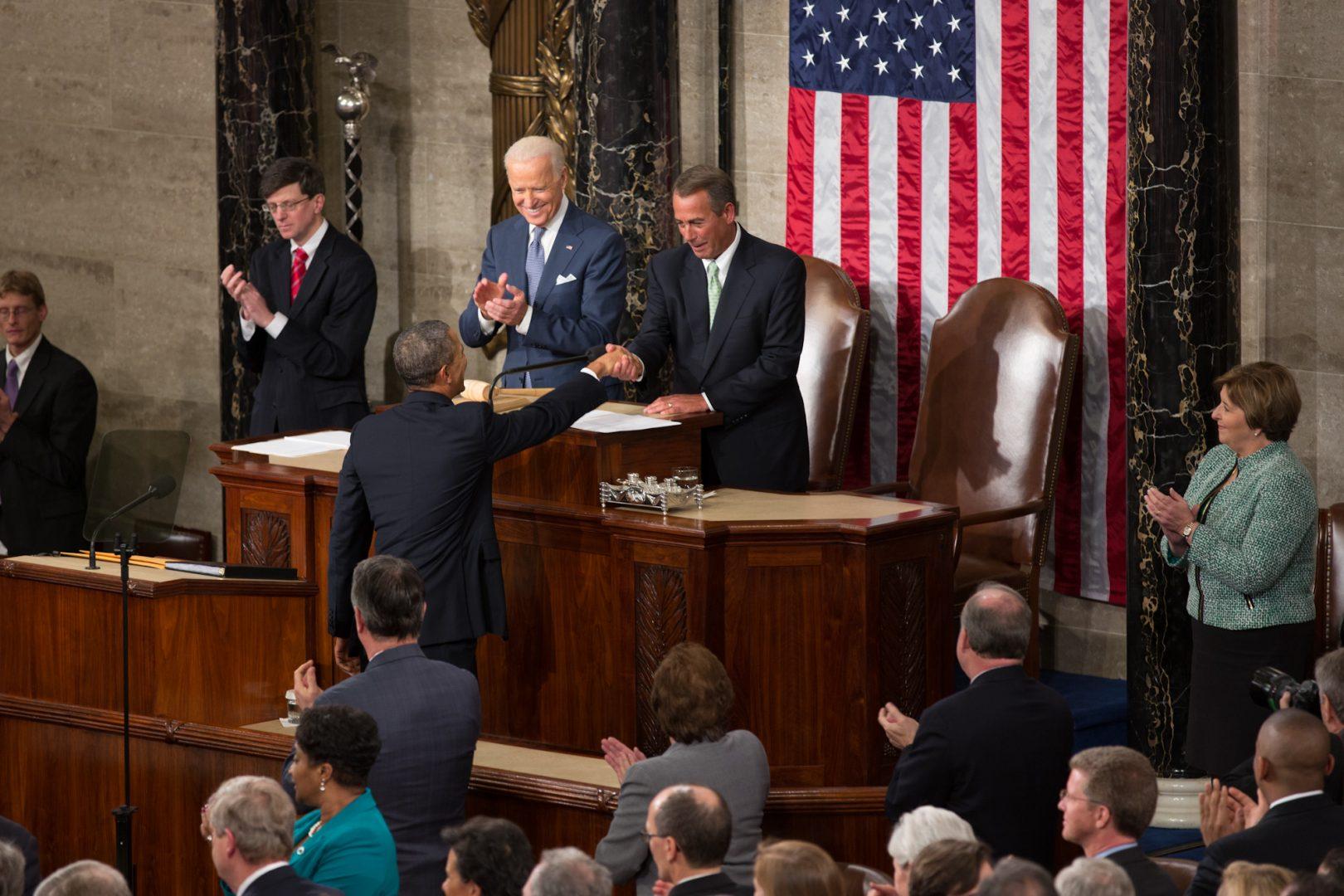This Year is The Year To Move Forward
February 8, 2014

On Jan. 28, President Barack Obama delivered his fifth State of the Union address in which he discussed his plans to move forward from the 16-day long government shutdown that marred the image of our political leaders in the minds of many Americans. The President announced his goals for the rest of the year and the rest of his term in office; he plans to raise the federal minimum wage, create more sustainable jobs in the economy and preserve the planet’s endangered environment. He also declared his disappointment in the weak and gridlocked Congress, announcing his plans to bypass Congress at any chance he would get if they prove to be uncooperative in the future.
The only solution to this gridlocked Congress is executive action. The current Speaker of the House, John Boehner (R-OH), admitted that the Republican members of Congress were at fault for the government shutdown. He stated in an interview with the DC Daily Caller that Republicans had “refused to negotiate with the President,” and that the ordeal was a “predictable disaster.” During negotiations, the Republicans refused to compromise with Democrats; if they couldn’t have events unfold the way they wanted to, they were going to stop government operations all together. Congress has proved time and time again that they are simply not willing to cooperate with each other, let alone even care about pushing the President’s agenda forward.
In a purposeful and malicious campaign, Congress has brought itself to a screeching halt. Exercising executive power is now more in tune with what the people want from the government, with Obama’s approval ratings climbing back up to 44 percent and Congress’ approval rating from the public standing at 19 percent (and steadily decreasing). It isn’t difficult to see why, what with this Congress being the most unproductive that our country has ever had: in the first year of Obama’s new term, just 58 bills passed into law, and many of those laws related only to renaming post offices, according to National Public Radio (NPR) correspondent David Welna’s “Congress is on Pace to be the Least Productive Congress Ever.” This Congress has even been more unproductive then the notorious “Do Nothing Congress,” which convened in 1949. It is obvious now to the public that the gridlock is a direct result of the failure of the Republican Party, and now the majority of the public has an overwhelmingly negative perception of our Congress. With Obama’s approval rating nearly twice that of Congress, the public is unable to put its faith in the political leaders who should be representing their interests, and now they must rely on the President circumventing them.
Reaching across the aisle has not been a goal for the majority of the congressional members this year. The Republicans, a party that has made a huge jump to the right over the course of these past few years, have refused to even begin to compromise with the left, or even with the moderates, of their own party on anything—a childish move that only results in stalemate and confusion. This new pressure from the President might just be that push that Congress, particularly Republicans in Congress, needs in order to do their jobs—and do them effectively.
America has a much more active year ahead of them: a promising sign of this increased productivity is the bugs being worked out of the new Obamacare website, which seemed like a failure at the end of last year but is now picking up more traffic and working more smoothly. Obama also seems determined to pass the raise of the federal minimum wage, which coupled with reports that state it is impossible to live on the current minimum wage means that this proposition could very well become reality.
Hopefully, this new pressure will force Congress into taking meaningful action—like raising the minimum wage—but if it doesn’t, the President will push his agenda forward without them.









